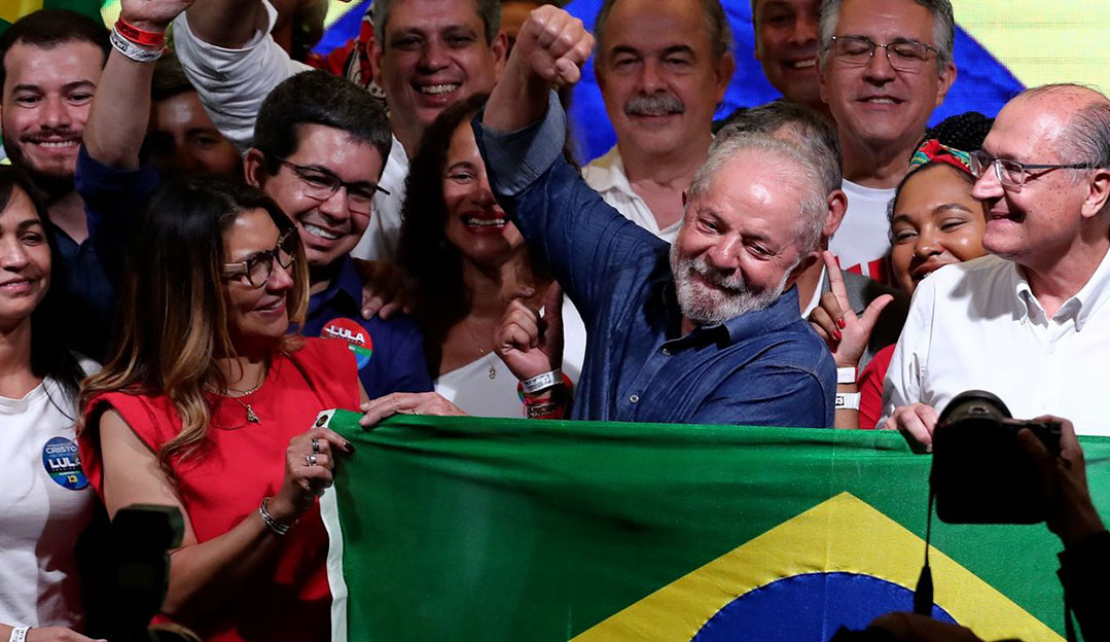BRAZIL | Lula Triumphs over Jair Bolsonaro who is yet to concede defeat in presidential polls

BRASÍLIA — Ousted Brazilian President Jair Bolsonaro is yet to concede defeat, after voters in Brazil on Sunday elected former President Luiz Inácio Lula da Silva to replace him, a rebuke of Bolsonaro’s far-right movement, and a divisive four years in office.
The victory completes a stunning political revival for Mr. da Silva — from the presidency to prison and back — that had once seemed unthinkable.
According to Reuters, however, President Jair Bolsonaro will not publicly address his defeat in Brazil's presidential election until Tuesday, a minister said, amid doubts over whether the far-right nationalist will accept the victory of his leftist rival Luiz Inacio Lula da Silva.
Bolsonaro was holding off on making remarks so he could prepare a speech, Communications Minister Fabio Faria told Reuters. But it was not clear if Bolsonaro would concede defeat, as his allies were encouraging him to do.
The election ends Bolsonaro’s turbulent time as the region’s most powerful leader. For years, he attracted global attention for policies that accelerated the destruction of the Amazon rainforest and exacerbated the pandemic, which left nearly 700,000 dead in Brazil, while also becoming a major international figure of the far right for his brash attacks on the left, the media and Brazil’s democratic institutions.
More recently, his efforts to undermine Brazil’s election system drew particular concern at home and abroad, as well as worldwide attention to Sunday’s vote as an important test for one of the world’s largest democracies.
Without evidence, the president has criticized the nation’s electronic voting machines as rife with fraud and suggested he might not accept a loss, much like former US President Donald J. Trump. Many of his supporters vowed to take to the streets at his command.
As of 11 p.m. local time on Sunday night, Mr. Bolsonaro had not publicly commented on the election’s outcome. The questions of whether he would concede and when remained unclear.
The results on Sunday showed that tens of millions of Brazilians had grown tired of his polarizing style and the frequent turmoil of his administration. It was the first time an incumbent president failed to win re-election in the 34 years of Brazil’s modern democracy.
Still, Mr. da Silva won with the narrowest margin of victory over that same period, signaling the deep divide that he will confront as president.
He won 50.90 percent of the votes, versus Mr. Bolsonaro’s 49.10 percent with 99.98 percent of the vote counted Sunday night.
“I will govern for 215 million Brazilians, and not just for those who voted for me,” Mr. da Silva said in his victory speech Sunday night, reading from pages held by his new wife, whom he married this year. “There are not two Brazils. We are one country, one people, one great nation.”
Mr. da Silva, 77, a former metalworker and union leader with a fifth-grade education, led Brazil during its boom in the first decade of the century, but he was later convicted on corruption charges after he left office and spent 580 days in prison.
Last year, the Supreme Court threw out those convictions, ruling that the judge in his cases was biased, and voters rallied behind the man known simply as “Lula.”
Mr. da Silva’s election brings an end to a presidential race that was widely regarded as one of the most important votes in Latin America in decades, a match between perhaps Brazil’s two biggest living political figures, with starkly different visions to reverse the country’s fortunes.
His victory also pushes Brazil back to the left, extending a string of leftist victories across Latin America, fueled by a wave of anti-incumbent backlash. Six of the region’s seven largest countries have now elected leftist leaders since 2018.
Lula's win represents a stunning comeback for the 77-year-old former metalworker, who governed Brazil from 2003 to 2010 but then spent time in prison for corruption convictions that were later annulled.
Lula has vowed to overturn many of Bolsonaro's policies, including pro-gun measures and weak protection of the Amazon rainforest.
Environmentalists and sustainable investors cheered Lula's victory and his commitment to protect the rainforest and restore Brazil's leadership on climate change.
Even before he is due to take office on Jan. 1, President-elect Lula will send representatives to next month's COP27 United Nations climate summit in Sharm El Sheikh, Egypt, allied environmentalist Marina Silva said on Monday.
In his victory speech on Sunday evening, Lula pledged to strongly police illegal logging, mining and land grabbing that have driven the surging destruction of the Amazon rainforest in the past four years under Bolsonaro.
Pitching the contest as a battle for democracy, Lula promised to unite his deeply divided country and celebrated what he called his "resurrection."
"I will govern for 215 million Brazilians, and not just for those who voted for me," Lula said at his campaign headquarters. "We are one country, one people, one great nation."
The Supreme Electoral Court (TSE) declared Lula won 50.9% of votes, against 49.1% for Bolsonaro, who becomes the first Brazilian incumbent to lose a presidential election.
